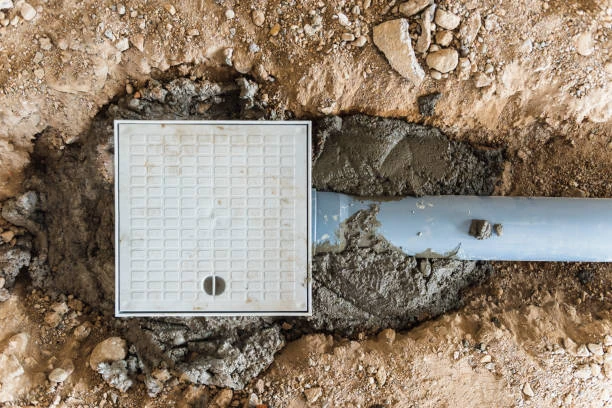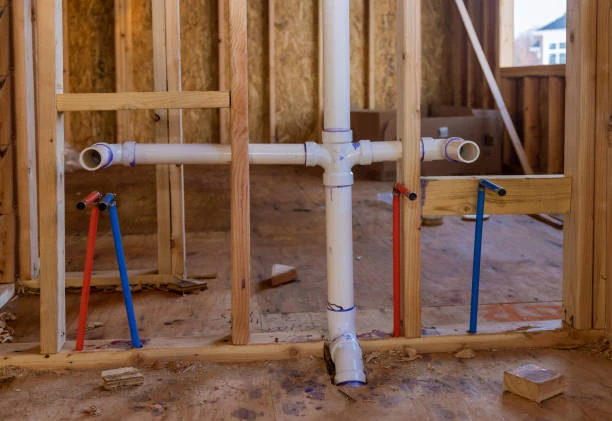Introduction in Pipes Manufacturer
A recent report has cast doubts on the safety of PVC pipes used in drinking water systems. The report claims that these pipes may leach harmful chemicals into the water supply over time. In response, pipes manufacturer have strongly rejected these claims. They argue that PVC pipes are safe, reliable, and extensively tested to meet safety standards. This article explores the accusations made against PVC pipes, the defense by pipes manufacturer, and the ongoing debate surrounding the use of PVC in drinking water infrastructure.
The Allegations in the Report
The report raising concerns about PVC pipes suggests that they could be risky for drinking water. The authors claim that chemicals used in the manufacturing of PVC pipes may leach into the water over time. These chemicals include phthalates, lead stabilizers, and other additives, which could potentially harm human health. According to the report, prolonged exposure to these substances might cause endocrine disruption and other long-term health issues. The report also raises concerns about the degradation of PVC pipes and their potential to release microplastics into the water.
These findings have caused alarm among consumers and regulators, but pipes manufacturers are pushing back against the report’s conclusions.
Pipes Manufacturers’ Response to the Allegations
Pipes manufacturers have criticized the report for being misleading and lacking scientific evidence to support its claims. Industry experts state that they have thoroughly tested PVC pipes, ensuring they comply with strict safety standards. These standards aim to guarantee that PVC pipes are safe for use in drinking water systems. Manufacturers emphasize that they now use safer additives in the production of modern PVC pipes, eliminating older, more hazardous substances like lead stabilizers from the manufacturing process.
1. Regulatory Oversight and Testing
Pipes manufacturers emphasize that PVC pipes undergo rigorous testing and must meet strict regulatory standards to be approved for use in drinking water systems. In the United States, PVC pipes must meet guidelines established by the Environmental Protection Agency (EPA) and the National Sanitation Foundation (NSF). These organizations test and certify materials to ensure they are safe for potable water.
The manufacturers point out that PVC pipes have been used safely in drinking water systems for decades. They highlight that modern PVC formulations do not contain lead or other harmful substances, making them a safe choice for water distribution.
2. The Science Behind PVC Safety
One of the main points made by pipes manufacturers is that modern PVC pipes are inert and do not release harmful substances under typical conditions. Extensive studies have shown that the risk of leaching from PVC pipes is extremely low. Furthermore, the additives used in PVC pipes today are chosen for their safety and stability. Research indicates that the levels of leaching from PVC pipes are far below the thresholds set by regulatory agencies.
Manufacturers also argue that PVC is one of the most durable and long-lasting materials for water pipes. Unlike metals like steel or copper, PVC does not corrode or rust over time, which reduces the risk of harmful contaminants being released into the water.
3. Endorsements from Independent Bodies
Pipes manufacturers also point to endorsements from independent organizations as evidence of PVC pipes’ safety. For example, NSF International, which sets health standards for materials used in drinking water systems, certifies PVC pipes for potable water use. Similarly, the American Water Works Association (AWWA) provides guidelines and standards for water distribution pipes, including PVC.
Manufacturers argue that these certifications confirm the safety of PVC pipes in drinking water systems. They assert that the allegations made in the report are not supported by credible scientific research or regulatory standards.
The Role of PVC in Water Infrastructure
PVC pipes are widely used in water distribution systems around the world, and pipes manufacturers explain that they offer several key advantages over other materials. PVC is lightweight, affordable, and easy to install. Additionally, PVC pipes have a long lifespan, often lasting decades without requiring replacement. Their resistance to corrosion and scaling is a significant benefit over metal pipes, which can degrade and contaminate water over time.
Furthermore, pipes manufacturers point out that PVC pipes are more environmentally friendly than alternatives like copper or steel. The energy required to produce PVC pipes is relatively low, and they are 100% recyclable at the end of their life.

Addressing Concerns About Microplastics in Pipes Manufacturer
One of the more alarming claims in the report is the potential release of microplastics from degrading PVC pipes. Pipes manufacturers counter this claim by explaining that modern PVC pipes are designed to be highly durable and resistant to degradation. The likelihood of PVC pipes breaking down into microplastics under normal operating conditions is extremely low.
Research has shown that the material used in PVC pipes is stable and does not degrade quickly in the types of environments found in typical water systems. As a result, pipes manufacturers argue that the risk of microplastics entering the water supply from PVC pipes is negligible.
The Benefits of PVC Pipes for Drinking Water Systems
Despite the controversy, pipes manufacturers continue to highlight the benefits of using PVC pipes in drinking water infrastructure:
- Durability: PVC pipes last for decades without corroding, unlike metal pipes, which can rust and degrade over time.
- Cost-Effectiveness: PVC pipes are less expensive to produce and install, making them an attractive option for municipalities and construction projects.
- Low Maintenance: PVC pipes require minimal maintenance, reducing the long-term costs associated with repairs and replacements.
- Environmental Impact: PVC pipes are lightweight, energy-efficient to produce, and recyclable, making them an environmentally responsible choice.
By continuing to use PVC pipes, pipes manufacturers argue that municipalities can save money on repairs, reduce their carbon footprint, and provide a safer, more reliable water distribution system to their residents.
Conclusion in Pipes Manufacturer
The recent report alleging that PVC pipes pose a risk to drinking water safety has caused significant concern, but pipes manufacturers strongly reject the claims. They argue that PVC pipes are safe, reliable, and thoroughly tested to meet regulatory standards. Manufacturers emphasize that they make modern PVC pipes free from harmful additives like lead and design them to be durable and resistant to degradation.
While the debate continues, it is clear that PVC remains one of the most popular materials for water distribution systems worldwide. As pipes manufacturers continue to innovate and improve the safety of their products, PVC pipes will likely remain an essential part of water infrastructure for many years to come.
Frequently Asked Questions (FAQ)
1. Are PVC pipes safe for drinking water?
Yes, PVC pipes are widely considered safe for drinking water and are rigorously tested to meet safety standards.
2. What chemicals are used in PVC pipes?
Modern PVC pipes use safe additives, with no lead-based stabilizers or harmful chemicals. Older pipes may have contained these substances, but they are no longer used.
3. Can PVC pipes cause health problems?
When manufactured according to regulatory standards, PVC pipes are safe and do not pose health risks. Extensive research supports their safety.
4. Do PVC pipes release microplastics into drinking water?
The risk of PVC pipes releasing microplastics is extremely low. PVC pipes are designed to be durable and resistant to degradation under normal conditions.
5. How long do PVC pipes last?
PVC pipes have a long lifespan, often lasting over 50 years without corroding, making them a durable and low-maintenance option for water distribution systems.


















